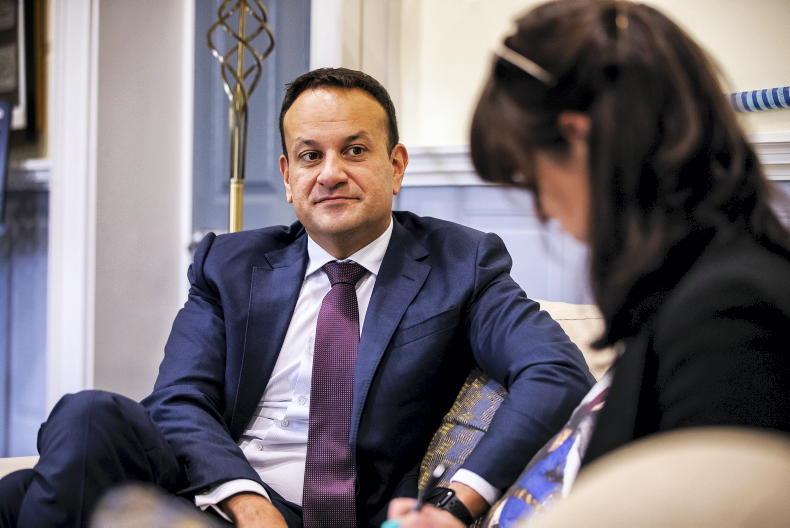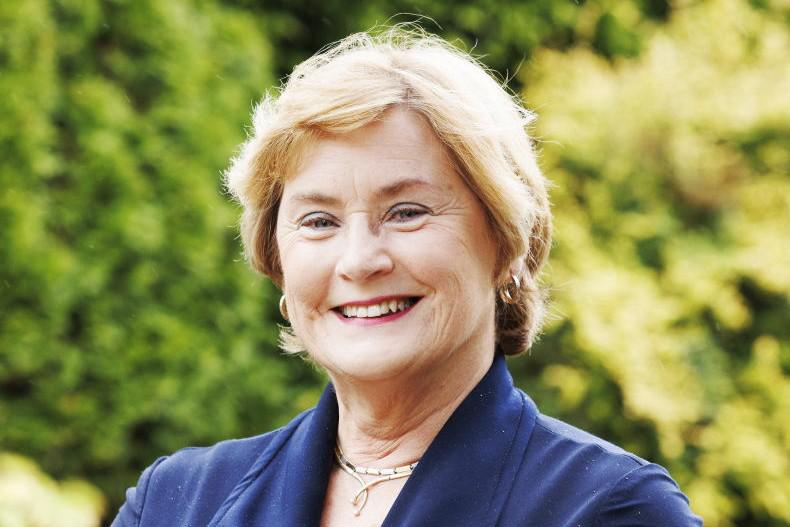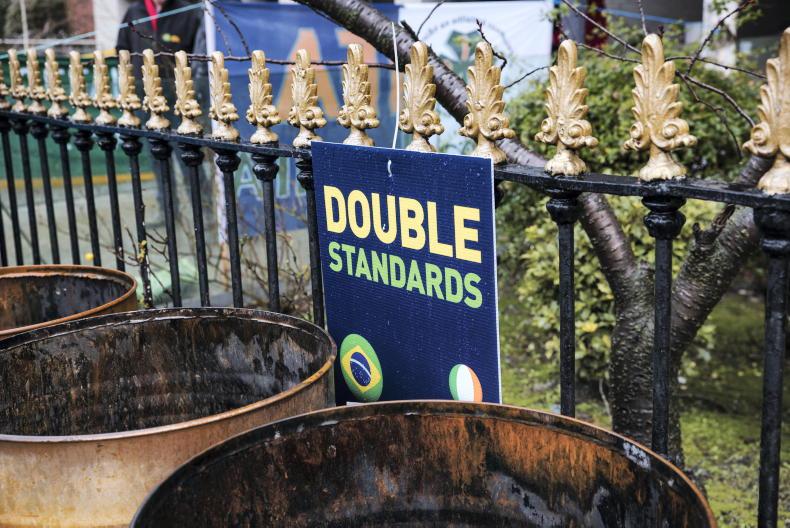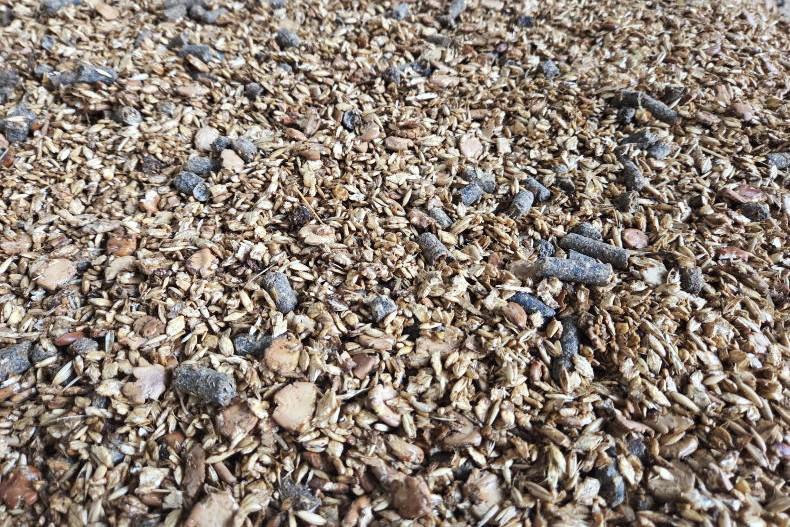The electricity went off in our house last Saturday afternoon.
Alexa went silent, the washing machine beeped, the oven stopped and the fridge no longer hummed behind me. Everything went quiet.
Prepping for a small girl’s birthday party, with brown bread in the oven and sausage meat on my hands, I looked down at the bowl and thought “how am I going to cook these?”
Thankfully it was only momentary – the fridge’s low hum resumed and the clock on the AGA flickered as it called for a reset. I carried on, but while rolling sausage meat into puff pastry, the potential for more frequent and extended breaks in our electricity supply crossed my mind.
Obligations
With greenhouse gas reduction obligations now set and a quick tot completed by the educated, it was clear that even with existing plans and technology, the legally binding 51% reduction we have set ourselves is not achievable. What we have now is a “stretch goal”.
In business, the impetus to improve is innate as it is linked to better returns through stronger performance. Stretch goals encourage managers to be aggressive in achieving the [almost] impossible.
However, what happens when the stretch goal is simply not possible? Agriculture is not quite as alone in this situation as it might have appeared before the targets were fixed.
Now other segments of the economy have started to peep above the what’s possible and what’s not parapet.
Earlier this year when I was researching the cost of house retrofitting, it was made clear to me that the best way for our household to decarbonise was to invest in an air to water heating system.
Aside from the cost (not currently affordable), this system runs on electricity which is mainly created from fossil fuels.
To change the dial on that, Ireland needs to massively increase the amount of renewable electricity it produces.
The 2030 target is set at 75% from renewable sources, with 39.1% achieved in 2021.
This will not be easy, given that emissions from the energy sector increased by almost 18% in 2021. This was driven by a tripling of coal and oil use in electricity generation.
Progress
Progress had been made prior to 2021 but, according to the ESB, “a combination of factors saw an increase in electricity generation from Moneypoint to meet demand”. Moneypoint is important for its energy storage capacity, which would “enable the system to cope with medium and long-term gas disruptions on the system”. Although it’s not a great scenario environmentally, I am wondering what the alternative is until we have adequate renewable capacity in place.

Tánaiste Leo Varadkar interviewed by Amii McKeever in his office in Government Buildings. \ Philip Doyle
When I interviewed the Tánaiste Leo Varadkar last month, we spoke about judicial reviews. He made the point that many projects get held up in the courts through judicial reviews and not just agricultural projects but also Government and green energy projects.
Fuels for Ireland, the group representing oil importers and distributors, was on RTÉ radio this week expressing concern that increased targets for its sector are not only unachievable but discriminatory.
A judicial review could follow.
There are rumours that other groups could also go down this avenue in pursuit of what they consider to be a “fairer” outcome for their sector or climate goal.
While last Saturday’s power outage was momentary, my mother later commented that my bread “wasn’t great – under-cooked”.
I have decided that bread baking perfection is my stretch goal this month.
Read more
Tánaiste: 'I think we can all get behind a plan'
If farmers were not engaging with climate action, would they bother arguing?
The electricity went off in our house last Saturday afternoon.
Alexa went silent, the washing machine beeped, the oven stopped and the fridge no longer hummed behind me. Everything went quiet.
Prepping for a small girl’s birthday party, with brown bread in the oven and sausage meat on my hands, I looked down at the bowl and thought “how am I going to cook these?”
Thankfully it was only momentary – the fridge’s low hum resumed and the clock on the AGA flickered as it called for a reset. I carried on, but while rolling sausage meat into puff pastry, the potential for more frequent and extended breaks in our electricity supply crossed my mind.
Obligations
With greenhouse gas reduction obligations now set and a quick tot completed by the educated, it was clear that even with existing plans and technology, the legally binding 51% reduction we have set ourselves is not achievable. What we have now is a “stretch goal”.
In business, the impetus to improve is innate as it is linked to better returns through stronger performance. Stretch goals encourage managers to be aggressive in achieving the [almost] impossible.
However, what happens when the stretch goal is simply not possible? Agriculture is not quite as alone in this situation as it might have appeared before the targets were fixed.
Now other segments of the economy have started to peep above the what’s possible and what’s not parapet.
Earlier this year when I was researching the cost of house retrofitting, it was made clear to me that the best way for our household to decarbonise was to invest in an air to water heating system.
Aside from the cost (not currently affordable), this system runs on electricity which is mainly created from fossil fuels.
To change the dial on that, Ireland needs to massively increase the amount of renewable electricity it produces.
The 2030 target is set at 75% from renewable sources, with 39.1% achieved in 2021.
This will not be easy, given that emissions from the energy sector increased by almost 18% in 2021. This was driven by a tripling of coal and oil use in electricity generation.
Progress
Progress had been made prior to 2021 but, according to the ESB, “a combination of factors saw an increase in electricity generation from Moneypoint to meet demand”. Moneypoint is important for its energy storage capacity, which would “enable the system to cope with medium and long-term gas disruptions on the system”. Although it’s not a great scenario environmentally, I am wondering what the alternative is until we have adequate renewable capacity in place.

Tánaiste Leo Varadkar interviewed by Amii McKeever in his office in Government Buildings. \ Philip Doyle
When I interviewed the Tánaiste Leo Varadkar last month, we spoke about judicial reviews. He made the point that many projects get held up in the courts through judicial reviews and not just agricultural projects but also Government and green energy projects.
Fuels for Ireland, the group representing oil importers and distributors, was on RTÉ radio this week expressing concern that increased targets for its sector are not only unachievable but discriminatory.
A judicial review could follow.
There are rumours that other groups could also go down this avenue in pursuit of what they consider to be a “fairer” outcome for their sector or climate goal.
While last Saturday’s power outage was momentary, my mother later commented that my bread “wasn’t great – under-cooked”.
I have decided that bread baking perfection is my stretch goal this month.
Read more
Tánaiste: 'I think we can all get behind a plan'
If farmers were not engaging with climate action, would they bother arguing?









SHARING OPTIONS